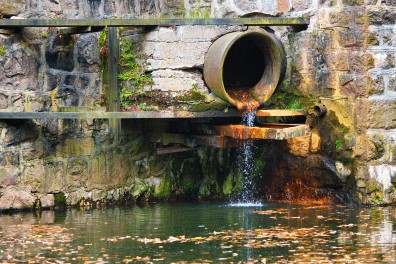In all urban areas of Armenia, domestic and industrial wastewaters are currently discharged into rivers, ponds, irrigation canals and land areas without treatment. This leads to water resources pollution, land resources degradation and can cause generations of serious environmental, health and socio-economic problems.
In Soviet times, 22 wastewater treatment plants were operating in Armenia, out of which only Yerevan’s wastewater treatment plant is still operating, with only partial mechanical treatment implemented. The remaining plants are no longer in use.
In recent years, the Armenian government has begun to pay attention to the rehabilitation of the wastewater treatment process. In 2013-2014 five wastewater treatment plants were built and commissioned. However, due to a lack of funds, only mechanical treatment structures were built in those plants.
Experts and professional organisations of the sector are now looking for ways to develop and implement alternative technologies for domestic wastewater treatment, which would demand small financial, energy and technical resources.
The workshop was attended by representatives of all stakeholder ministries; the Ministry of Nature Protection, the Ministry of Urban Development, Ministry of Agriculture, Ministry of Territorial Administration, Ministry of Economy, as well as agencies, regional councils of all 10 marzes, the Yerevan Municipality, water companies, village administrations, and international organisations.
A report of the event is available on the GWP Central Asia and Caucasus website (pdf).
The photo is a generic waste water picture from the GWO archive/MostPhotos.

